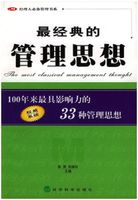THE TURNOVER OF CAPITAL
THE TIME OF CIRCULATION [8]We have seen that the entire time of turnover of a given capital is equal to the sum of its time of circulation and its time of production. It is the period of time from the moment of the advance of capital-value in a definite form to the return of the functioning capital-value in the same form.
The compelling motive of capitalist production is always the creation of surplus-value by means of the advanced value, no matter whether this value is advanced in its independent form, i.e., in the money-form, or in commodities, in which case its value-form possesses only ideal independence in the price of the advanced commodities. In both cases this capital-value passes through various forms of existence during its circular movement.
Its identity with itself is fixed in the books of the capitalists, or in the form of money of account.
Whether we take the form of M ... M' or the form P ... P, the implication is (1) that the advanced value performs the function of capital-value and has created surplus-value; (2) that after completing its process it has returned to the form in which it began it. The self-expansion of the advanced value M and at the same time the return of capital to this form (the money-form) is plainly visible in M ... M'. But the same takes place in the second form. For the starting-point of P is the existence of the elements of production, of commodities having a given value. The form includes the self-expansion of this value (C' and M') and the return to the original form, for in the second P the advanced value has again the form of the elements of production in which it was originally advanced.
We have seen previously: "If production be capitalistic in form, so, too, will be reproduction. Just as in the former the labour-process figures but as a means towards the self-expansion of capital, so in the latter it figures but as a means of reproducing as capital -- i.e., as self-expanding value -- the value advanced." (Buch I, Kap. XXI, S. 588.)[English edition: Ch. XXIII, p. 566. -- Ed .]
The three forms (I) M ... M' (II) P ... P, and (III) C' ... C', present the following distinctions: in form II, P ... P, the renewal of the process, the process of reproduction, is expressed as a reality, while in form Ionly as a potentiality. But both differ from form III in that with them the advanced capital-value -- advanced either in the form of money or of material elements of production -- is the starting-point and therefore also the returning point. In M ... M' the return is expressed by M' = M+ m. If the process is renewed on the same scale, M is again the starting-point and m does not enter into it, but shows merely that M has self-expanded as capital and hence created a surplus-value, m, but cast it off. In the form P ... P capital-value P advanced in the form of elements of production is likewise the starting-point. This form includes its self-expansion.
If simple reproduction takes place, the same capital-value renews the same process in the same form P. If accumulation takes place, then P' (equal in magnitude of value to M', equal to C') reopens the process as an expanded capital-value. But the process begins again with the advanced capital-value in its initial form, although with a greater capital-value than before.
In form III, on the contrary, the capital-value does not begin the process as an advance, but as a value already expanded, as the aggregate wealth existing in the form of commodities, of which the advanced capital-value is but a part. This last form is important for Part III, in which the movements of the individual capitals are discussed in connection with the movement of the aggregate social capital. But it is not to be used in connection with the turnover of capital, which always begins with the advance of capital-value, whether in the form of money or commodities, and which always necessitates the return of the rotating capital-value in the form in which it was advanced.
Of the circuits I and II, the former is of service in a study primarily of the influence of the turnover on the formation of surplus-value and the latter in a study of its influence on the creation of the product.















